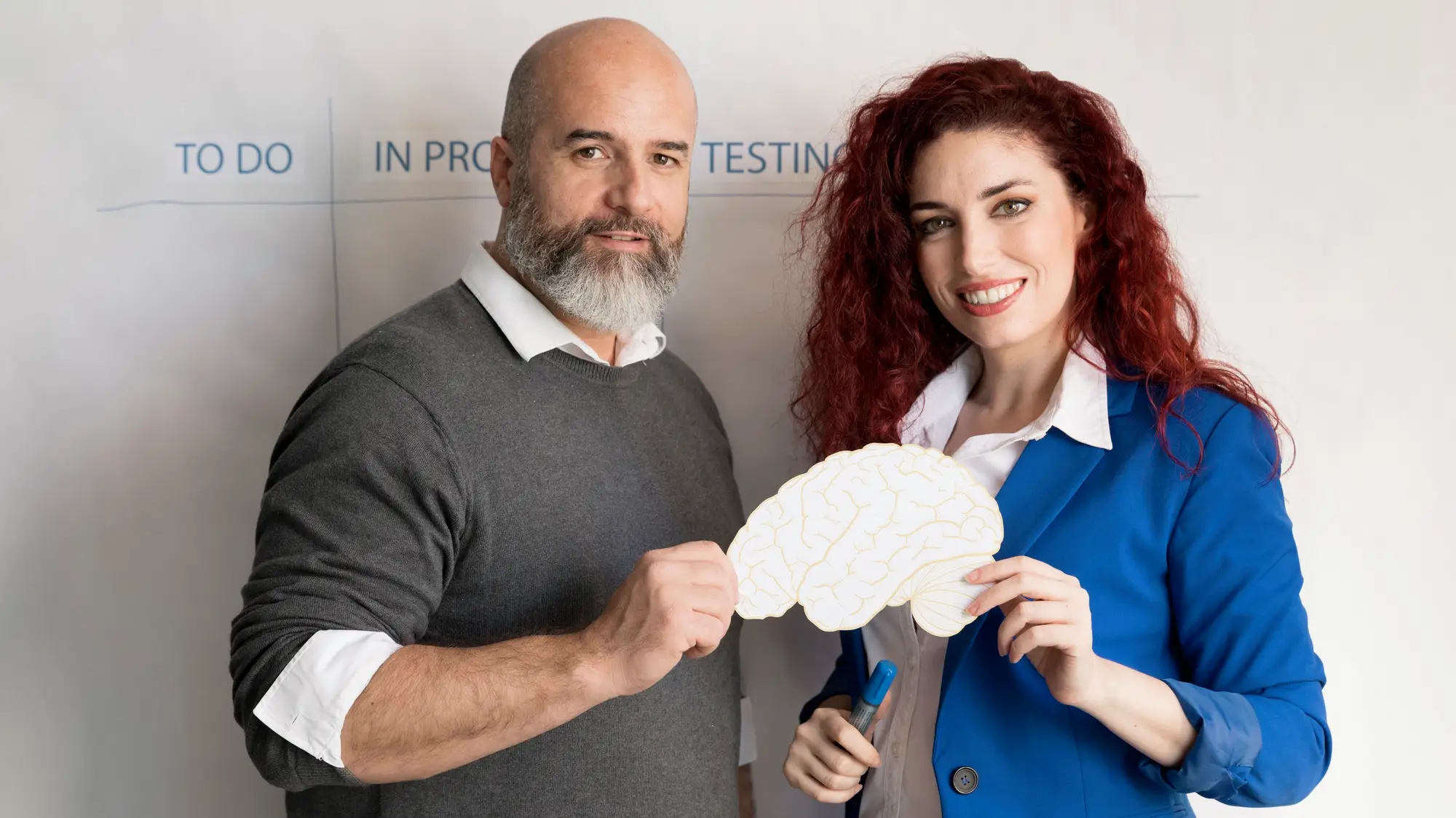Executive Summary
Success often feels like a combination of intelligence, hard work, and luck. However, cognitive science tells us that success is far from random — it is deeply tied to how we process information, solve problems, and regulate emotions. A cognitive approach to success centres on understanding mental processes such as perception, attention, memory, decision-making, and problem-solving. These components shape not only how professionals work but also how they approach challenges and collaborate in dynamic environments.
This whitepaper explores the cognitive approach to unlocking professional success. It breaks down how mental processing impacts performance, identifies cognitive biases that hinder decision-making, and introduces tools to optimise thought patterns and behaviours. Whether you’re aiming for clarity in decision-making, creativity in problem-solving, or efficiency in execution, mastering cognitive processes can provide a pathway to long-term success.
Introduction
Professionals thrive on their ability to think critically, adapt to challenges, and execute decisions successfully. However, many overlook the complex mental processes underlying their performance. Cognitive psychology offers key insights into how individuals process information and make decisions, revealing areas in which they excel — and cognitive pitfalls that may hold them back.
By adopting a cognitive approach, professionals can refine their internal processes to work smarter instead of simply harder. Success becomes not just a matter of effort but of how effectively the brain interprets and manipulates information to achieve desired outcomes.
This whitepaper delves into the mental architecture of success through a cognitive lens, equipping professionals with strategies to enhance their mental agility, decision-making, and productivity.
What is the Cognitive Approach?
The cognitive approach is a psychological framework that examines how mental processes influence behaviour. It focuses on how people perceive and interpret information, store it in memory, and use it to solve problems or make decisions. Cognitive principles underpin how we interact with the world around us and play a significant role in our professional and personal success.
Rather than emphasising external motivators or unconscious influences, the cognitive approach acknowledges the role of active, conscious mental effort. By understanding the mechanics of mental processing, professionals can change unproductive habits and optimise their performance.
Core Components of Cognitive Processing
At the heart of the cognitive approach to success are the following mental processes:
- Perception: How we interpret and make sense of sensory information, shaping how we view problems and opportunities.
- Attention: The ability to focus mental resources on specific tasks or stimuli while filtering out unimportant distractions.
- Memory: Storing, retrieving, and applying information, which affects learning, problem-solving, and long-term strategy.
- Decision-Making: The ability to analyse choices, evaluate outcomes, and select the best course of action.
- Problem-Solving: Applying existing knowledge and creativity to overcome obstacles and achieve goals.
Professionals capable of mastering these processes gain a significant advantage in high-pressure environments where cognitive agility is key.
The Role of Mental Processing in Professional Success
Cognitive processing forms the foundation of nearly all professional success. Whether it’s analysing financial reports, managing a team, or presenting creative ideas, the mind’s ability to process, prioritise, and act on data is pivotal. Below, we explore how these core mental processes manifest in professional life.
1. Perception: Seeing Success More Clearly
Perception shapes how we interpret the world and determines whether we view situations as opportunities or obstacles. Cognitive distortions — such as overly negative thinking or confirmation bias — can warp perception and lead to suboptimal decisions.
Overcoming Perceptual Distortions:
- Practice Objectivity: When assessing a situation, consciously separate facts from assumptions.
- Seek Diverse Perspectives: Engage multiple viewpoints to counteract one-sided interpretations.
- Mindfulness Techniques: Use mindfulness to stay grounded in the present and reduce emotional reactivity, which can alter perception.
Building accurate, balanced perceptions allows professionals to identify opportunities others might overlook.
2. Attention: The Key to Focus and Productivity
In fast-paced work environments, attention is constantly under attack by distractions. Emails, social media, and multitasking split focus and reduce cognitive efficiency. Research shows that multitasking can impair performance, highlighting the importance of directing full attention to a single task.
Strategies for Enhancing Attention:
- Time Blocking: Allocate specific times for deep-focus work and remove distractions.
- The “Two-Minute Rule”: Address minor distractions quickly so they don’t linger in your mind.
- Mindful Breaks: Take short, intentional breaks to reinvigorate concentration.
Professionals who master attention can dramatically improve their productivity and output quality.
3. Memory: Retaining and Applying Knowledge
In the professional world, retention of knowledge and the ability to apply it are critical. Memory allows leaders to draw on past experiences, spot patterns, and creatively solve problems. However, memory is not perfect — cognitive overload, stress, and lack of attention can impair recall.
Improving Memory for Professional Success:
- Spaced Repetition: Reinforce knowledge periodically over time to improve retention.
- Chunking Information: Group related information into “chunks” for easier comprehension and recall.
- Reduce Cognitive Load: Simplify workflows or decision trees, freeing mental resources for high-priority tasks.
Enhanced memory systems improve not only problem-solving but also team collaboration and knowledge transfer.
4. Decision-Making: From Analysis to Action
Professionals make countless decisions daily, from small operational choices to high-stakes strategic moves. However, cognitive biases can undermine decisions by distorting logic or narrowing focus. For instance, confirmation bias leads professionals to favour evidence that aligns with existing beliefs, while anchoring bias skews evaluations based on initial information.
Keys to Better Decision-Making:
- Use Decision Frameworks: Tools like SWOT analysis help structure decisions and reduce emotional interference.
- Challenge Cognitive Biases: Slow down and intentionally consider alternative viewpoints.
- Scenario Modelling: Anticipate multiple outcomes to build more resilient strategies.
By enhancing decision-making processes, professionals can choose smarter strategies with greater confidence.
5. Problem-Solving: Creativity Meets Logic
Complex workplace challenges require professionals to synthesise knowledge, think critically, and explore creative solutions. However, stress, pressure, and limited cognitive flexibility can hinder problem-solving abilities.
Improving Problem-Solving Skills:
- Stay Open-Minded: Embrace unconventional ideas to foster innovation.
- Adopt a Structured Approach: Use systematic methods such as root cause analysis (RCA) to break complex problems into manageable parts.
- Collaborate for Creativity: Harness the power of group brainstorming for diverse solutions.
Strong problem-solving capabilities are a key driver of professional advancement.
Overcoming Cognitive Barriers
Cognitive barriers — such as biases, information overload, or mental fatigue — are natural but reduce performance over time. Recognising these pitfalls is the first step in overcoming them.
Common Barriers to Cognitive Success
- Cognitive Biases: Patterns of flawed reasoning (e.g., confirmation bias, sunk-cost fallacy) that distort judgments.
- Mental Overload: Excessive multitasking or handling too much information reduces cognitive precision.
- Emotional Distraction: Unregulated emotions, such as anxiety or frustration, impede mental clarity.
Tools for Managing Cognitive Challenges
- Cognitive Behavioural Strategies (CBT): Techniques like reframing negative thought patterns can neutralise cognitive biases.
- Information Prioritisation: Employ tools such as Eisenhower’s Matrix to focus on high-priority, high-impact tasks.
- Stress-Reduction Practices: Implement mindfulness, breathing exercises, or regular physical activity to promote mental clarity.
The payoff for addressing cognitive barriers is significant: professionals who free themselves from these obstacles gain sharper thinking, better insights, and improved decision-making.
Unlocking Long-Term Cognitive Success
While learning cognitive techniques is essential, consistency and practice drive mastery. A growth mindset — where learning is constant and perceived failures offer growth opportunities — aids resilience and skill development. Professionals looking to succeed over the long term can integrate the following strategies into their work routines.
Building Cognitive Habits
- Reflect Daily: Take time to evaluate what worked (or didn’t) during the day from a cognitive standpoint.
- Continuous Learning: Reading philosophy, neuroscience, or psychology enhances understanding of cognitive mechanisms.
- Feedback Loops: Seek ongoing, constructive feedback to challenge blind spots.
Measuring Your Cognitive Growth
Success in the cognitive approach can be measured through increased productivity, better team communication, faster problem-solving, and confident decision-making. Practical applications can include:
- Keeping a journal to track thought patterns and note recurring biases.
- Establishing benchmarks for project efficiency or individual performance.
- Regularly revisiting learned techniques to ensure continued growth.
Conclusion
Success is rarely just a matter of circumstances or raw ability. It depends on how effectively individuals perceive, organise, and process the many challenges they face. By embracing a cognitive approach, professionals uncover tools for improving attention, memory, decision-making, and problem-solving, ensuring they remain mentally agile and equipped to thrive.
Practical strategies like cognitive restructuring, mindfulness, and decision frameworks offer pathways to enhanced performance while reducing the cognitive barriers that hinder output and creativity.
Ultimately, the cognitive approach empowers individuals to work smarter, adapt faster, and unlock greater potential in both their professional and personal lives. By mastering mental processing, success becomes not just attainable — but consistently repeatable.









